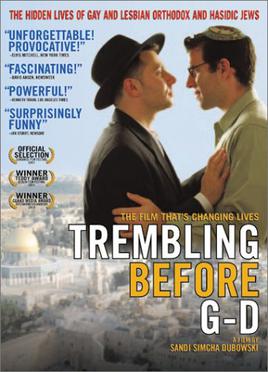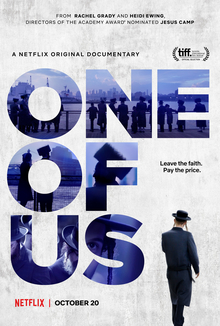Related Research Articles

Haredi Judaism is a branch of Orthodox Judaism that is characterized by its strict interpretation of religious sources and its accepted halakha and traditions, in opposition to more accommodating values and practices. Its members are usually referred to as ultra-Orthodox in English; a term considered pejorative by many of its adherents, who prefer the terms strictly Orthodox or Haredi. Haredim regard themselves as the most authentic custodians of Jewish religious law and tradition which, in their opinion, is binding and unchangeable. They consider all other expressions of Judaism, including Modern Orthodoxy, as deviations from God's laws, although other movements of Judaism would disagree.

Chabad, also known as Lubavitch, Habad and Chabad-Lubavitch, is a dynasty in Hasidic Judaism. Belonging to the Haredi (ultra-Orthodox) branch of Orthodox Judaism, it is one of the world's best-known Hasidic movements, as well as one of the largest Jewish religious organizations. Unlike most Haredi groups, which are self-segregating, Chabad mainly operates in the wider world and caters to nonobservant Jews.

Agudath Israel of America is an American organization that represents Haredi Orthodox Jews. It is loosely affiliated with the international World Agudath Israel. Agudah seeks to meet the needs of the Haredi community, advocates for its religious and civil rights, and services its constituents through charitable, educational, and social service projects across North America.
Jewish religious movements, sometimes called "denominations", include diverse groups within Judaism which have developed among Jews from ancient times. Today in the west, the most prominent divisions are between traditionalist Orthodox movements and modernist movements such as Reform Judaism originating in late 18th century Europe, Conservative originating in 19th century Europe, and other smaller ones, including the Reconstructionist and Renewal movements which emerged later in the 20th century in the United States.

Agudat Yisrael is a Haredi Jewish political party in Israel. It began as a political party representing Haredi Jews in Poland, originating in the Agudath Israel movement in Upper Silesia. It later became the party of many Haredim in Israel. It was the umbrella party for many, though not all, Haredi Jews in Israel until the 1980s, as it had been during the British Mandate of Palestine.

Rebbetzin or Rabbanit is the title used for the wife of a rabbi—typically among Orthodox, Haredi, and Hasidic Jews—or for a female Torah scholar or teacher.

Jewish education is the transmission of the tenets, principles, and religious laws of Judaism. Jews value education, and the value of education is strongly embedded in Jewish culture. Judaism places a heavy emphasis on Torah study, from the early days of studying the Tanakh.
Off the derech is a Yeshiva-English expression used to describe the state of a Jew who has left an Orthodox way of life or community, and whose new lifestyle is secular, non-Jewish, or of a non-Orthodox form of Judaism, as part of a contemporary social phenomenon tied to the digital, postmodern and post-postmodern eras. In its broadest sense it can also include those changing to a milder form of Orthodoxy. Despite the term's pejorative and controversially dichotomic and definitive nature, it has become popular in use among Orthodox people, is found in mainstream literature, and has also been reclaimed by some OTD individuals.

Trembling Before G-d is a 2001 American documentary film about gay and lesbian Orthodox Jews trying to reconcile their sexuality with their faith. It was directed by Sandi Simcha DuBowski, an American who wanted to compare Orthodox Jewish attitudes to homosexuality with his own upbringing as a gay Conservative Jew.

From the founding of political Zionism in the 1890s, Haredi Jewish leaders voiced objections to its secular orientation, and before the establishment of the State of Israel, the vast majority of Haredi Jews were opposed to Zionism, like early Reform Judaism, but with distinct reasoning. This was chiefly due to the concern that secular nationalism would redefine the Jewish nation from a religious community based in their alliance to God for whom adherence to religious laws were "the essence of the nation's task, purpose, and right to exists," to an ethnic group like any other as well as the view that it was forbidden for the Jews to re-constitute Jewish rule in the Land of Israel before the arrival of the Messiah. Those rabbis who did support Jewish resettlement in Palestine in the late 19th century had no intention to conquer Palestine and declare its independence from the rule of the Ottoman Turks, and some preferred that only observant Jews be allowed to settle there.
Jonathan (Yonason) Rosenblum is the director, spokesperson, and founder of Jewish Media Resources, an organization which attempts to clarify journalists' understanding of Haredi Jewish society.
Hashkafa is the Hebrew term for worldview and guiding philosophy, used almost exclusively within Orthodox Judaism. A hashkafa is a perspective that Orthodox Jews adopt that defines many aspects of their lives. Hashkafa thus plays a crucial role in how these interact with the world around them, and influences individual beliefs about secularity, gender roles, and modernity. In that it guides many practical decisions—where to send children to school, what synagogue to attend, and what community to live in—hashkafa works in conjunction with halakha or Jewish law.
Footsteps is a not-for-profit organization based in New York City that provides educational, vocational, and social support to people who have left or want to leave a Haredi or Hasidic Jewish community in the United States.
The response of the Haredi Jewish community in Brooklyn, New York City, to allegations of sexual abuse against its spiritual leaders has drawn scrutiny from inside and outside the Jewish community. When teachers, rabbis, and other leaders have been accused of sexual abuse, authorities in the Haredi community have often failed to report offenses to Brooklyn police, intimidated witnesses, and encouraged shunning against victims and those members of the community who speak out against cases of abuse, although work has been done within Jewish communities to begin to address the issue of sexual abuse.
Mavar is a UK-registered charitable organisation providing professional support to people who have left or want to leave the Haredi Jewish community. It provides financial, educational, legal, and emotional support enabling people to find new communities and support networks after Haredi Judaism.

Luzer Twersky is an American film and television actor. He is best known for his role in the film Felix and Meira, for which he garnered a Jutra Award nomination as Best Supporting Actor at the 18th Jutra Awards and won the Best Actor award at the Amiens International Film Festival and the Torino International Film Festival.
Shulem Deen is an American author, essayist, former Skver Hasid, and critic of Hasidic Judaism. He is the author of the memoir All Who Go Do Not Return (2015), and is a regular columnist at The Forward. He is also the founding editor of Unpious, a journal for voices critical of Hasidic lifestyle and beliefs.

Abby Chava Stein is an Israeli-American transgender author, rabbi, activist, blogger, model, and speaker. She is the first openly transgender woman raised in a Hasidic community, and is a direct descendant of Hasidic Judaism's founder, the Baal Shem Tov. In 2015, she founded one of the first support groups nationwide for trans people with an Orthodox Jewish background who have left Orthodox Judaism.

One of Us is a 2017 documentary feature film that chronicles the lives of three ex-Hasidic Jews from Brooklyn. The film was directed by Heidi Ewing and Rachel Grady, who also created the documentary Jesus Camp. One of Us opened at the Toronto International Film Festival in September 2017, and was distributed the following month of October via Netflix, which also financed the film.
My Unorthodox Life is an American reality television series by Netflix that premiered on July 14, 2021. The series centers on Julia Haart, the former CEO of a modeling agency and fashion company and a former ultra-Orthodox Jew, as Haart and her family acculturate to their new non-religious lifestyle in Manhattan. The second season premiered on December 2, 2022.
References
- ↑ "The harsh reality awaiting Hasidic Jews who leave their community behind". Haaretz. Retrieved April 12, 2021.
- ↑ ""DevOUT"— a new film about Orthodox Gay Jews (from Tablet Magazine)". December 19, 2011.
- ↑ "May 10, 2013 ~ Leaving Ultra-Orthodox Judaism - May 10, 2013 - Religion & Ethics NewsWeekly - PBS". PBS. May 10, 2013.
- ↑ "Haredi and Out of the Closet". The Forward. September 10, 2009.
- ↑ "Gay Jews Struggle in the Orthodox World". Tablet Magazine.
- ↑ Zarum, Lara (October 16, 2017). "Netflix's One of Us Reveals the Fight of Hasidic Jews to Break From the Sect". LA Weekly.
- ↑ Otterman, Sharon (May 25, 2018). "When Living Your Truth Can Mean Losing Your Children". The New York Times.
- ↑ West, Melanie Grayce (August 12, 2014). "Formerly Orthodox, and Struggling for Parental Rights". The Wall Street Journal.
- ↑ "'You Will Lose Your Entire Family': Inside The Struggle To Come Out In Ultra-Orthodox Judaism". Gothamist. Archived from the original on February 25, 2018. Retrieved August 29, 2018.
- ↑ "'One of Us': Film Review - TIFF 2017". The Hollywood Reporter . September 10, 2017.
- ↑ Kenigsberg, Ben (October 19, 2017). "Review: 'One of Us', a Portrait of Starting a New Life". The New York Times.
- ↑ "Breaking Up: Why Is Leaving Religion So Hard? Hasidic". Godzooks: The Faith in Facts Blog. May 19, 2018.